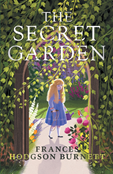| Subject |
Term 1 |
Term 2 |
Term 3 |
Term 4 |
Term 5 |
Term 6 |
| Topic/
History |
 |
 |
 |
| Geography |
Investigating Our World |
Sow, Grow and Farm |
Revision and Retrieval |
| English |
Bronze and Sunflower – Cao Wenxuan |
The Secret Garden – Frances Hodgson Burnett |
Who let the Gods out? – Maz Evans |
| Spellings |
- Silent letter b
- Words ending in the letter string –ough
- Words ending in –ible
- Homophones
- Words ending in –able
- Silent letter b
- Year 5/6 statutory spelling words (orange words)
|
- Words ending in –ibly and –ably
- Homophones
- Other easily confused words
- Words ending in –ent
- Words ending in –ence
- Year 5/6 statutory spelling words (orange words)
|
- The ee sound spelt ei
- Homophones
- Other easily confused words
- Words ending in –ant, -ance, -ancy
- Year 5/6 statutory spelling words (ornage words)
|
- Words ending in shus spelt –cious
- Words ending in shus spelt –tious
- Words ending in shul spelt –cial or –tial
- Year 5/6 statutory spelling words (orange words)
|
Consolidation of units from throughout year.
Consolidation of organge words. |
Use dictionaries to check the spellings of words. |
| Punctuation |
- Use commas to separate clauses effectively
- Discuss idea of ‘ambiguity’, when meaning is not clear
- Insert comma accurately when writing a relative clause
|
- Revise use of possessive apostrophe for singular, regular and irregular plural nouns
- Edit deliberate punctuation errors
- Add punctuation to dictated sentences.·
|
- Introduce how to punctuate parenthesis using pairs of commas, dashes or brackets
- Revise use of comma to separate items in a list
- Use bullet points where appropriate
|
- Use comma for all its purposes e.g. in punctuating direct speech, in lists, for parenthesis and to separate clauses for clarity; begin to use a single dash
- Punctuate parenthesis using pairs of commas, dashes or brackets
|
- Revise use of apostrophe for omission and possession
- Write dictated sentences which require decisions about punctuation
- Punctuate parenthesis using pairs of commas, dashes or brackets
|
- Read sentence aloud to hear its sense
- Discuss, highlight and analyse range of punctuation in texts
- Use comma for all its purposes e.g. in punctuating direct speech, in lists, for parenthesis and to separate clauses for clarity; begin to use a single dash
- Revise meaning of ambiguity
|
| Grammar |
- Secure understanding of the four sentence functions
- Review common, proper and collective nouns
- Collect a bank of relative pronouns
- Model relative clauses in which the relative pronoun refers back to the noun
- Identify and use pronouns to avoid repetition.
|
- Secure understanding of the four sentence functions
- Compose expanded noun phrases and apply to writing; evaluate own and others’ noun phrases
- Identify preposition phrases in sentences, including prepositions of place and time
|
- Different types of determiners
- Identify statements when reading cross curricular texts
- Identify adverbials both within and at the front of sentences
- Experiment with writing from 1st person point of view in the present tense
- Collect sets of time connectives from texts
|
- Model use of fronted adverbial, ensuring correct use of comma; discuss the effect of moving position of adverbial; apply fronted adverbials to own writing
- Identify statements when reading cross curricular texts
- Continue to identify adverbials both within and at the front of sentences.
- Identify the verb forms of a challenging extract which may mix forms
- Identify modal verbs in sentences
- Commands and questions
- Conjunctions
|
- Conjunctions
- Revise relative clauses
- Maintain consistency of tense when writing fiction and non-fiction texts;
- Identify and revise present perfect and past perfect verb forms
- Edit sentences or short paragraphs which mix tenses.
|
- Identify word classes in contexts which are challenging
- Identify commands and questions from more abstract possibilities
- Write a variety of sentence types when writing dialogue
- Write formal and informal sentences,
- Increasingly control a variety of verb forms in spoken and written contexts
|
| Mathematics |
Number
- Place value
- Addition and subtraction
- Multiplication and division A
- Fractions A
|
Number
- Multiplication and division B
- Fractions B
- Decimals and percentages
Measurement
Statistics |
Geometry
- Shape
- Position and direction
Number
- Decimals
- Negative numbers
Measurement
|
| Science |
Forces and Mechanisms
Earth and Space |
Human Reproduction and Ageing |
Properties and Changes of Materials |
| Computing |
Online Safety/Coding |
Spreadsheets |
Data Bases |
Game Creator |
3D modelling |
Processing |
| PE |
Invasion Games
Health Related Fitness |
Sports Hall Athletics
Invasion Games
|
Gymnastics
Multi skills |
Net and wall games
Invasion games
|
Athletics
Striking and Fielding
|
| RE |
 Buddhism Buddhism
Dharma Day
|
 Islam Islam
Ramadam and Eid al-Fitr |
 Hinduism Hinduism
Holi |
 Judaism Judaism
Passover
|
 Christianity Christianity
Pentecost
|
 Sikhism Sikhism
Guru Arjan Gurpurab
|
| PSHE |
Being me in my world |
Celebrating difference |
Dreams and goals |
Healthy me |
Relationships |
Changing me |
| Art |
- Tints, Tones and Shades – Colour in Landscape
- Taotie
|
- Line, Light and Shadows
- Nature’s Art
|
|
| DT |
|
|
|
| Music |
- What shall we do with a drunken sailor?
- Why we sing
- Introduction to songwriting
|
Percussion Unit
Rosewood Gratitude |
- Balinese Gamelan
- Composing in ternary form
- Kisne banaaya
|
| French |
On the way to school
Unit 10
|
Planets
Unit 12
|
Food
Unit 11 |
|
Seasons
Unit 13 |
Exploring
Unit 14
|







 Buddhism
Buddhism
 Islam
Islam
 Hinduism
Hinduism
 Judaism
Judaism
 Christianity
Christianity
 Sikhism
Sikhism